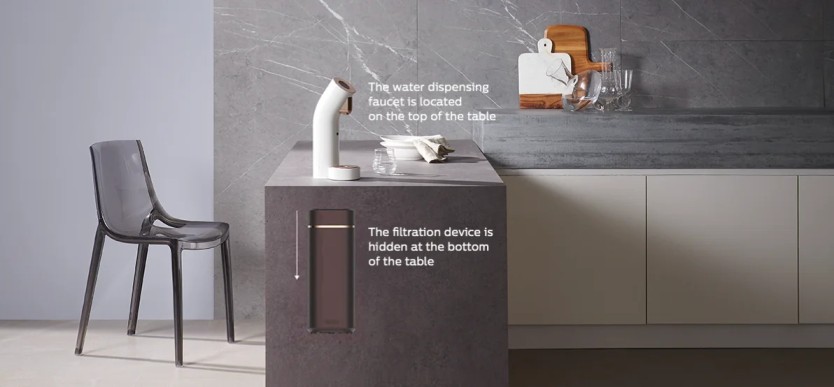Water is life, and nobody can live without it. Therefore, its purity is considered important from a health perspective. On this note, growing concern about water quality has made water filtration systems increasingly popular nowadays, but this increase in their popularity brings many myths and misconceptions. A clarification is going to be given as to common water filter myths to bring to light their effectiveness, maintenance, and overall importance of these devices.
All Water Filters Are the Same
Fact: Water filters vary significantly in their design, technology, and effectiveness.
Perhaps the biggest myth about water filters is that they all do the same thing. Actually, there are different types of filters for different kinds of contaminants. For example, an activated carbon filter is generally very effective at removing chlorine, sediment, and volatile organic compounds, or VOCs, but may not be very good at removing heavy metals or pathogens. On the other hand, a reverse osmosis system can remove a much wider range of impurities from the water, including dissolved solids and heavy metals.
This is significant because one has to identify what kind of contaminants exist in the water before deciding on which water filter Malaysia will work best. A water quality test could help a person find out which filter would best suit their needs.
Boiling Water Kills All Contaminants
Fact: Boiling does not remove all contaminants and may not be sufficient for certain pathogens.
There is a great misconception that boiling water, somehow, completely purifies it. The process of boiling can kill many bacteria types, viruses, and even some parasites, but cannot dissolve chemical contaminants, heavy metals, or sediment. For example, if your water has lead or pesticides in it, boiling will not help rid it of these poisons.
Moreover, boiling water tends to concentrate some contaminants, especially in cases when the boiling process results in evaporation. This is why using a certain filtration system capable of eliminating a broad range of impurities rather than just boiling the water is highly important.
Water Filters Are Too Expensive to Maintain
Fact: While there are initial costs, the long-term savings and health benefits outweigh the expenses.
A common misconception with water filters is that they are extremely expensive to maintain. While this may be true for some systems, especially very advanced systems such as reverse osmosis, higher upfront costs are often justified by the potential long-term savings along with your improved health.
Regular maintenance generally involves filter replacement every few months to a year, based on usage and type of system. Replacement filters do vary in cost; generally, however, they are a small fraction of what families spend on bottled water or medical bills related to waterborne illnesses. In addition, having access to clean filtered water encourages healthier hydration habits that further promote overall well-being.
You Only Need to Replace Filters Once a Year
Fact: Filter replacement frequency depends on usage, water quality, and the type of filter.
Some think that water filter cartridges need to be replaced only once in a year, which is a great oversimplification. Since the frequency in replacing these filters is based on quite a few factors, including:
- Water Usage: Households with higher water consumption will require more frequent filter changes.
- Water Quality: If your water supply has higher levels of sediment or contaminants, the filters will clog faster and need replacement sooner.
- Filter Type: Not all filtration technologies last for the same amount of time; for example, an activated carbon filter may need to be replaced in 2-6 months, whereas the reverse osmosis membranes will generally last about 2-3 years.
Always follow your specific filter manufacturer’s guidelines for peak performance and safety.
Filtered Water Is Not Necessary for Safe Drinking
Fact: Tap water quality can vary significantly, and filtration is often necessary for safety.
Some individuals believe that tap water is safe to drink without any treatment. While many municipalities treat water to meet safety standards, various factors can compromise water quality after treatment. These factors include aging infrastructure, contamination from runoff, and seasonal changes in water sources.
In Malaysia, for example, water quality can fluctuate based on rainfall and pollution levels. Relying solely on municipal treatment may not be sufficient for households, especially those in rural areas or regions with known contamination issues. Filtering your water provides an extra layer of protection, ensuring that harmful contaminants are removed before consumption.
All Water Filters Remove Fluoride
Fact: Not all filters effectively remove fluoride from water.
Fluoride is often added to municipal water supplies to promote dental health, but some individuals prefer to remove it for various health reasons. However, not all water filters are designed to eliminate fluoride.
Activated carbon filters do not effectively remove fluoride, while reverse osmosis systems can significantly reduce its concentration. If fluoride removal is a priority for your household, it’s essential to choose a filtration system specifically designed to target this compound.
You Can’t Use Water Filters with Well Water
Fact: Water filters can be used with well water, but specific considerations must be made.
Another misconception is that water filters are unsuitable for well water. In reality, many households rely on well water and can benefit greatly from water filtration systems. However, well water often contains unique contaminants, such as bacteria, nitrates, and minerals like iron and manganese.
Testing well water is crucial to identify specific contaminants present. Based on the results, homeowners can select appropriate filtration systems, such as UV purifiers for microbial contaminants or sediment filters for particulate matter. Regular testing and maintenance are essential to ensure the safety and quality of well water.
Once Filtered, Water Is Always Safe to Drink
Fact: Filtered water can still become contaminated after treatment.
While filtration significantly improves water quality, it’s important to recognize that filtered water can still become contaminated after treatment. Factors such as improper storage, recontamination from dirty containers, or exposure to air can introduce new impurities.
To maintain the safety of filtered water, store it in clean, airtight containers and avoid leaving it exposed to contaminants. Additionally, regularly clean and maintain your filtration system to prevent bacterial growth and ensure consistent performance.
Conclusion
Understanding the facts behind water filtration is essential for making informed decisions about your household’s water quality. By debunking common myths, we can appreciate the importance of using water filters to ensure safe, clean drinking water.
Investing in a suitable water filtration system tailored to your specific needs can significantly enhance your family’s health and well-being. Prioritize regular maintenance, stay informed about water quality, and take proactive steps to protect your loved ones from harmful contaminants. Clean water is not just a luxury; it is a necessity for a healthy life.

